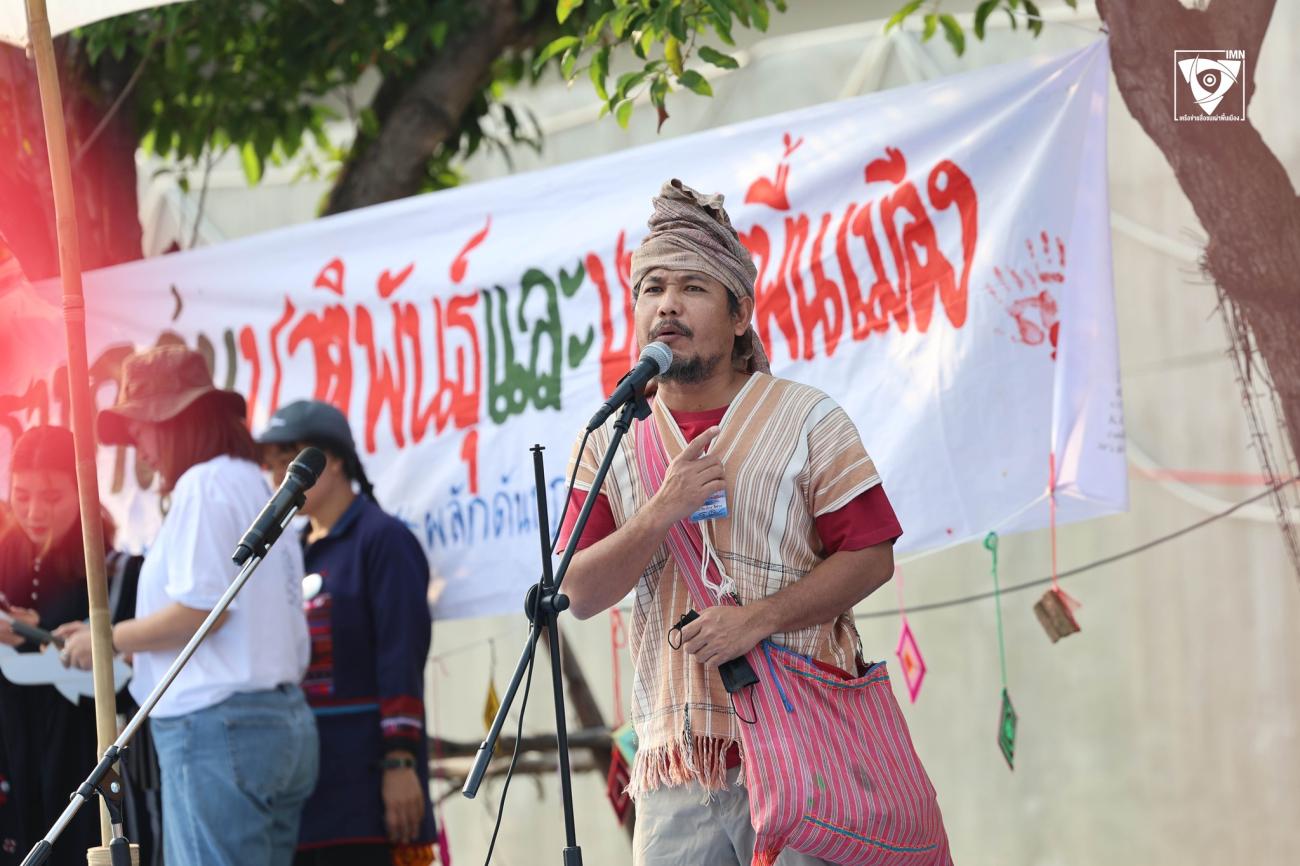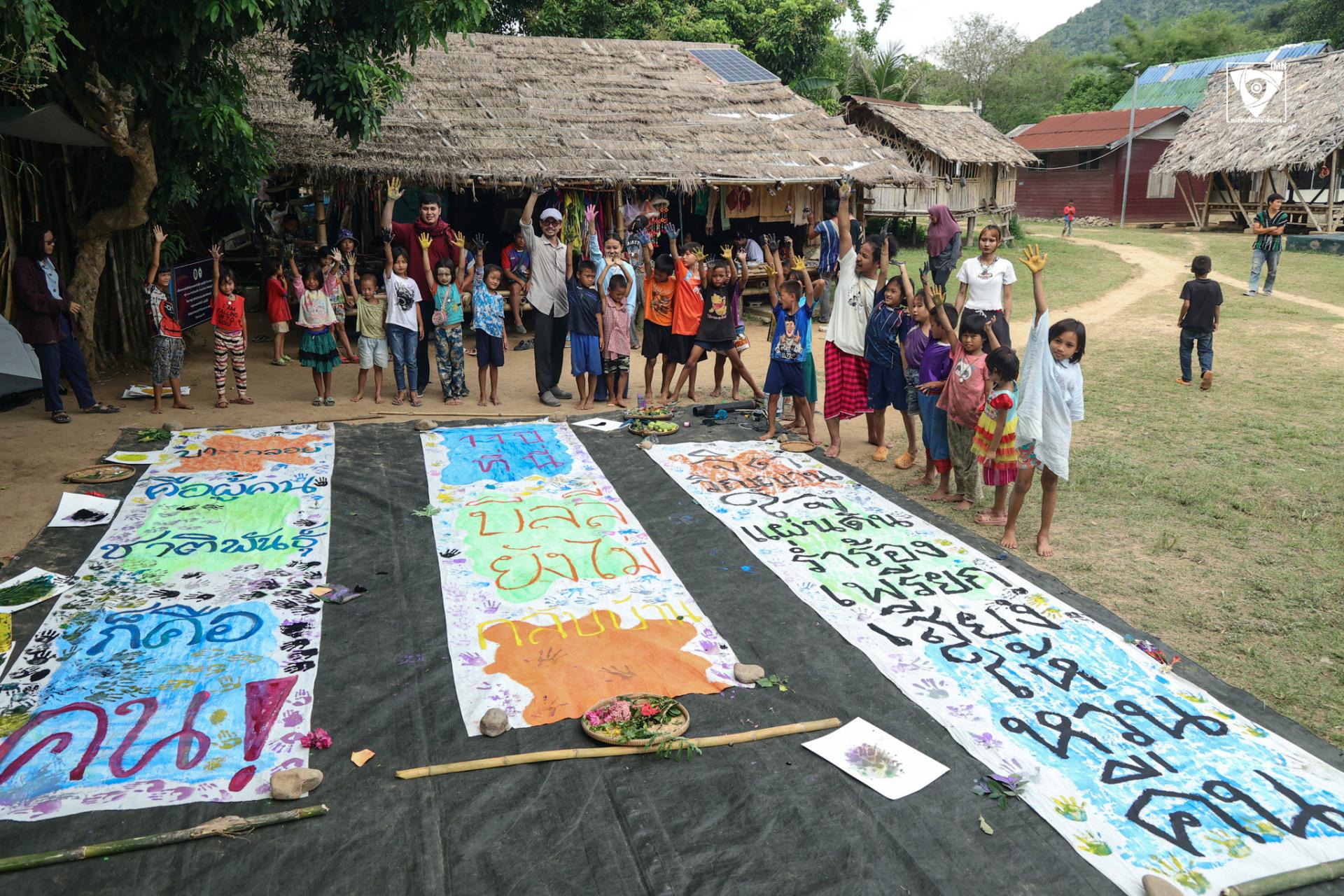
By Dev Kumar Sunuwar (Koĩts-Sunuwar, CS Staff)
On August 6, 2025, after years of campaigns, agitation, and advocacy undertaken jointly by Indigenous leaders, anthropologists, journalists, civil society groups, politicians, and others under a coalition, Thailand’s parliament finally endorsed the Ethnic Groups Protection and Promotion Bill. Endorsement of this bill marks a historic achievement as the nation’s first legislation aiming to safeguard the rights and cultural heritage of its estimated 6 million Indigenous Peoples and ethnic minorities. The bill received significant support, with 421 votes in favour, three abstentions, and two votes against it. The bill was endorsed just days before the International Day of the World’s Indigenous Peoples on August 9, as a gift to Indigenous Peoples, and is no doubt a revolutionary milestone for a country that has long been defined by a singular notion of "Thainess."
This landmark bill, which is waiting for a Royal endorsement before it takes effect in 90 days, is Thailand’s first effort to legally recognize the existence of multiethnic communities in Thailand. Similarly, it also sets another precedent for the rights of Indigenous Peoples across Asia. Thailand has reached this milestone, following the precedents of some of its neighboring countries, such as the Philippines, Taiwan, and Nepal, in advancing the rights of Indigenous Peoples.
In 1997, the Philippines passed the law titled ‘Indigenous Peoples’ Rights Act (IPRA), which provides a legal basis for Indigenous Peoples to get recognized as a distinct community and protect their rights, such as their right to self-governance, cultural integrity, and the right to their ancestral domain, land, and resources, with their native titles. Likewise, in 2005, Taiwan endorsed the Indigenous Peoples Basic Law (amended in 2015), which has been important in advancing the rights of Indigenous Peoples, mainly for the full realization of their right to self-governance, land rights, including their right to free prior and informed consent for resource development on traditional lands, while ensuring benefit-sharing with respective Indigenous communities. In 2002, Nepal officially endorsed the National Foundation for Development of Indigenous Nationalities (NFDIN), recognizing 59 ethnic and caste groups as Indigenous Peoples. The Act, more importantly, aims to protect and promote the language, culture, and traditions of Indigenous Peoples. Thailand adopted this new law, being inspired by these examples, which marks a significant milestone towards multiculturalism in the country where ethnic minorities long faced systematic exclusion and marginalization due to non-recognition as Indigenous Peoples.

The endorsement of the bill results from a decade-long effort by Indigenous leaders and communities in Thailand, who comprise approximately 9 percent of the total population of 71.6 million and consist of 64 different ethnic groups, 48 of which self-identity as ‘Indigenous’. In 2014, bringing together representatives from ethnic groups such as the Karen, Hmong, Lisu, Moken, Mani, among others, the Council of Indigenous Peoples of Thailand (CIPT), an umbrella organization of Indigenous Peoples, was established. Following the formation, one of the mandates of CIPT was to lead the movement for legal recognition and secure the rights of Indigenous Peoples of Thailand. Due to pressure from the movement of Indigenous Peoples and their collective voice, the government first introduced this bill in 2014. But it remained stagnant in parliament due to political deadlock. In 2022, CIPT formed a larger alliance to further pressure the government. It then conducted a series of massive nationwide signature campaigns that involved over 10,000 people. The government then tabled the bill again in parliament in 2024 and finally approved it in 2025. The collective efforts of Indigenous Peoples together with their larger civil society group resulted in a historic victory for Indigenous Peoples and ethnic minorities in Thailand, whose voices have often been silenced and ignored.
For Indigenous Peoples’ Rights Advocate Kriangkai Chichuang, a Paw-Karen from Thailand’s Western Forest complex and Chairperson of CIPT, the endorsement of the bill is both a personal and collective victory. On April 8, 2025, dressed in a hand-woven Karen top and turban, standing in Parliament addressed the Thai parliament and pleaded for equality, saying, “This bill will not give us any additional privileges, it will simply improve our access to rights as equals to Thai citizens.”
His message reflects that Indigenous Peoples, who long faced discrimination and were treated with distrust in the workplace because of their accents, were often criminalized on their ancestral land and territories due to conflicts with modern Conservation laws. Thus, they collectively aspire for equality and recognition. The bill comprises 47 provisions that recognize their identities and guarantee that they have access to fundamental rights as Thai citizens and equally aim to address these grievances by legally recognizing their identity, affirming their access to fundamental rights, addressing cultural loss, resolving land disputes, and mitigating displacement resulting from development projects.

While this legislation is regarded as a significant victory, Indigenous Peoples' rights advocates point out several shortcomings. According to Indigenous Rights Activists, the most notable is the exclusion of the term ‘Indigenous Peoples’, as it is the ‘Ethnic Protection Bill’, not the ‘Indigenous Protection Bill’. However, this term is used to align with the 2017 Constitution, and more importantly, there are also challenges of ensuring its effective implementation. This, therefore, reflects both the complexities of balancing cultural and linguistic diversity with national identity in a region where ethnic minorities have historically faced marginalization and exclusion.
Thailand signed in favor of the UN Declaration on the Rights of Indigenous Peoples in 2007. Still, the policymakers are reluctant to use the term ‘Indigenous Peoples’, as the term ‘Indigenous’ connotes a sense of belonging to the ancestral land and territories, and also those who enjoy the right to self-determination under international legal frameworks.
“The approval of the bill is a gift to the ethnic Peoples of Thailand, although many aspects may not align with the public’s proposal, including the definition of ‘Indigenous Peoples’ and declaration of ‘self-protected zone’, which the Senate narrowed down. But this law is actionable. The law has created a political space for ethnic groups to thrive. Therefore, today marks a historic day of enactment of a law that recognises the rights of Indigenous peoples, affirming their existence,” said MP Manop Kiriphuwan, addressing a press conference after the endorsement of the bill by parliament. He further stated, “Now a sub-committee will be established to study the process of declaring cultural zones, and thus law will serve as a guide for the public and agencies.”
The rejection to use the term ‘Indigenous Peoples’ in the bill is also seen not as a linguistic issue, but the government’s reluctance to accept diversity with the right. “Indigenous Peoples can no longer reference international mechanisms and principles to protect themselves, simply because the state has not granted them that status. The government often cited ‘national security’ as a key reason for not officially recognizing the existence of ‘Indigenous Peoples’, arguing that the claims grant them certain rights, such as the ‘right to self-determination’, that undermine the ‘unity of the nation-state’, said Nittaya Earkarnna, Director of Inter-Mountain Peoples Education and Culture in Thailand Association (IMPECT), who is also a member of the Hmong Indigenous Peoples of Thailand, further questioned, ‘but the question is: whose security? For Indigenous Peoples, security means not being evicted from their land and homes. Security means that their children can speak their own language without it being assimilated. And it means having the right to make decisions that affect their way of life. If security comes at the cost of erasing people’s identities, that is not a principle of democracy. It is authoritarianism dressed in the rhetoric of legitimacy.”
The bill's adoption has been widely applauded, but Indigenous Rights activists doubt its effective implementation. “The adoption of this bill is no doubt an important achievement for Indigenous Peoples, as it somehow recognizes them legally. But there is still a long way on this journey to get full recognition and realization of their rights as Indigenous Peoples and, more importantly, effective implementation,” said Phnom Thano, Indigenous rights activist and journalist associated with Indigenous Media Network, Thailand. His words reflect the broader challenge of translating legislative victory into reality in a country where no ethnic groups are currently legally recognized as distinct ethnic groups under the law.
The adoption of a bill by the parliament of Thailand is considered a ‘new era’ for recognizing the ethnic diversity in Thailand. Piyarat Tiyapairat, MP from Chaing Rai and chairwoman of the drafting committee, addressing the parliament before the bill's adoption, said, “This is not a law particularly for any one group, but for all Thais. It is to help embrace diverse ethnic groups and transform them into a force for nation-building through cultural and ethnic diversity.” She further acknowledged the existing structural barriers faced by diverse ethnic groups, such as a lack of legal recognition, limited access to education, healthcare, and stigmatisation. Therefore, this bill is a tool to reduce those inequalities and ensure equal rights.
Despite its shortcomings, the bill undoubtedly offers tremendous opportunities for Indigenous Peoples and ethnic minorities to assert their identities and, to some extent, advocate for their rights. As the bill plans, if a national committee is formed and cultural protection zones are declared, Indigenous Peoples may be able to participate in governance; they could be involved in decision-making that affects their land and culture. Towards that end, there is a need to raise awareness and strengthen the capacity of their network.
The passage of the bill sends a powerful message to the global community about Thailand’s commitment to ethnic and cultural diversity. Yet the journey toward their true inclusion and meaningful participation in state bodies remains ongoing. Nittaya Earkarnna rightly states, ‘Although Thailand has not yet fully or legally recognised the identity of ‘Indigenous Peoples’ as they wanted, the bill provides an opportunity for ethnic minorities to assert their identity, organise themselves, and create a network from the grassroots, building alliances at the national and international level.”
Photos courtesy of Indigenous Media Network, Thailand.
